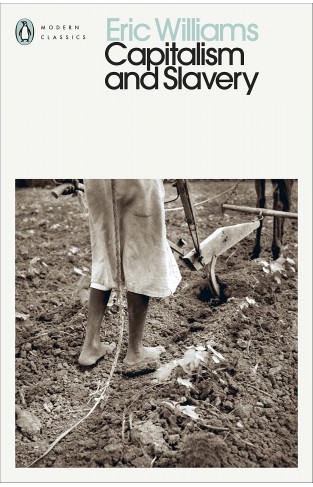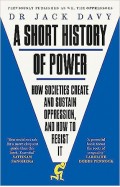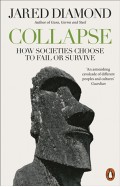Capitalism and Slavery
By: Eric Williams
-
Rs 2,245.50
- Rs 2,495.00
- 10%
You save Rs 249.50.
Due to constant currency fluctuation, prices are subject to change with or without notice.
Arguing that the slave trade was at the heart of Britain's economic progress, Eric Williams's landmark 1944 study revealed the connections between capitalism and racism, and has influenced generations of historians ever since.
Williams traces the rise and fall of the Atlantic slave trade through the eighteenth and nineteenth centuries to show how it laid the foundations of the Industrial Revolution, and how racism arose as a means of rationalising an economic decision. Most significantly, he showed how slavery was only abolished when it ceased to become financially viable, exploding the myth of emancipation as a mark of Britain's moral progress.
'Its thesis is a starting point for a new generation of scholarship' New Yorker
Arguing that the slave trade was at the heart of Britain's economic progress, Eric Williams's landmark 1944 study revealed the connections between capitalism and racism, and has influenced generations of historians ever since.
Williams traces the rise and fall of the Atlantic slave trade through the eighteenth and nineteenth centuries to show how it laid the foundations of the Industrial Revolution, and how racism arose as a means of rationalising an economic decision. Most significantly, he showed how slavery was only abolished when it ceased to become financially viable, exploding the myth of emancipation as a mark of Britain's moral progress.
'Its thesis is a starting point for a new generation of scholarship' New Yorker
Zubin Mehta: A Musical Journey (An Authorized Biography)
By: VOID - Bakhtiar K. Dadabhoy
Rs 630.00 Rs 1,050.00 Ex Tax :Rs 630.00
A Short History of Power: How societies create and sustain oppression, and how to resist it
By: Jack Davy
Rs 2,965.50 Rs 3,295.00 Ex Tax :Rs 2,965.50
An Autobiography - The Story of My Experiments with Truth
By: Mohandas K. Gandhi
Rs 2,245.50 Rs 2,495.00 Ex Tax :Rs 2,245.50
Collapse: How Societies Choose to Tail of Survive
By: Jared Diamond
Rs 2,695.50 Rs 2,995.00 Ex Tax :Rs 2,695.50
Myths Illusions and Peace: Finding a New Direction for America in the Middle East
By: Dennis Ross
Rs 985.50 Rs 1,095.00 Ex Tax :Rs 985.50
The Origins of Political Order From Prehuman Times to the French RevolutioN
By: Francis Fukuyama
Rs 3,505.50 Rs 3,895.00 Ex Tax :Rs 3,505.50
Manning Up: How the Rise of Women Has Turned Men into Boys
By: Kay Hymowitz
Rs 796.00 Rs 995.00 Ex Tax :Rs 796.00
The Obama Syndrome: Surrender At Home War Abroad
By: Tariq Ali
Rs 1,165.50 Rs 1,295.00 Ex Tax :Rs 1,165.50
The Quest For Meaning: Developing A Philosophy Of Pluralism
By: Tariq Ramadan
Rs 1,255.50 Rs 1,395.00 Ex Tax :Rs 1,255.50
A Short History of Power: How societies create and sustain oppression, and how to resist it
By: Jack Davy
Rs 2,965.50 Rs 3,295.00 Ex Tax :Rs 2,965.50
An Autobiography - The Story of My Experiments with Truth
By: Mohandas K. Gandhi
Rs 2,245.50 Rs 2,495.00 Ex Tax :Rs 2,245.50
Collapse: How Societies Choose to Tail of Survive
By: Jared Diamond
Rs 2,695.50 Rs 2,995.00 Ex Tax :Rs 2,695.50
No recently viewed books available at the moment.
Zubin Mehta: A Musical Journey (An Authorized Biography)
By: VOID - Bakhtiar K. Dadabhoy
Rs 630.00 Rs 1,050.00 Ex Tax :Rs 630.00
A Short History of Power: How societies create and sustain oppression, and how to resist it
By: Jack Davy
Rs 2,965.50 Rs 3,295.00 Ex Tax :Rs 2,965.50
An Autobiography - The Story of My Experiments with Truth
By: Mohandas K. Gandhi
Rs 2,245.50 Rs 2,495.00 Ex Tax :Rs 2,245.50
Collapse: How Societies Choose to Tail of Survive
By: Jared Diamond
Rs 2,695.50 Rs 2,995.00 Ex Tax :Rs 2,695.50














-120x187.jpg?q6)













-120x187.jpg?q6)





